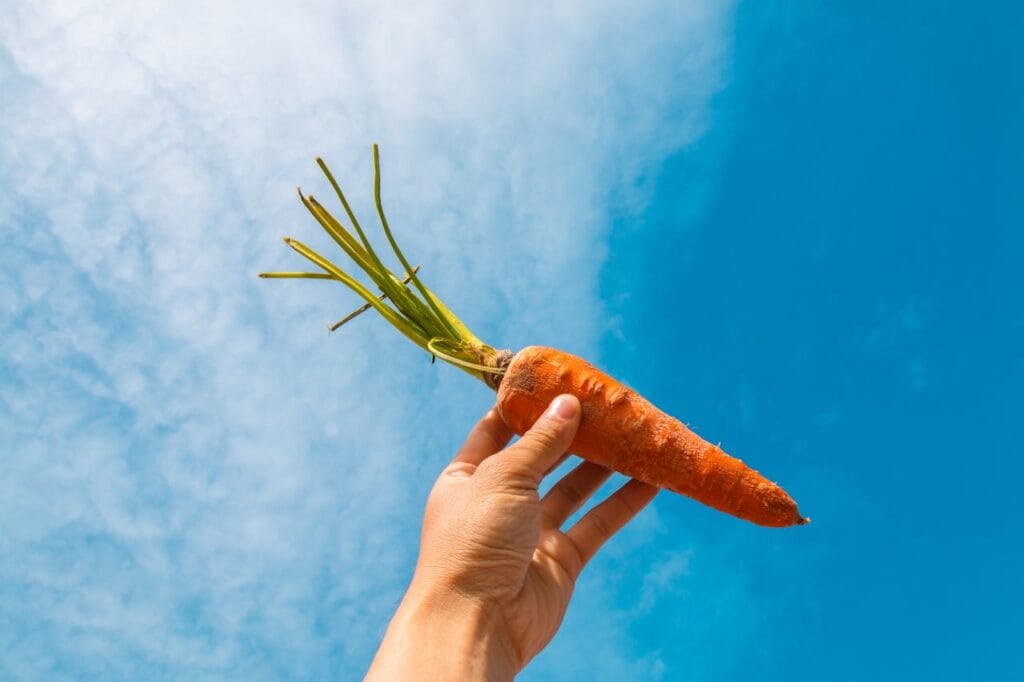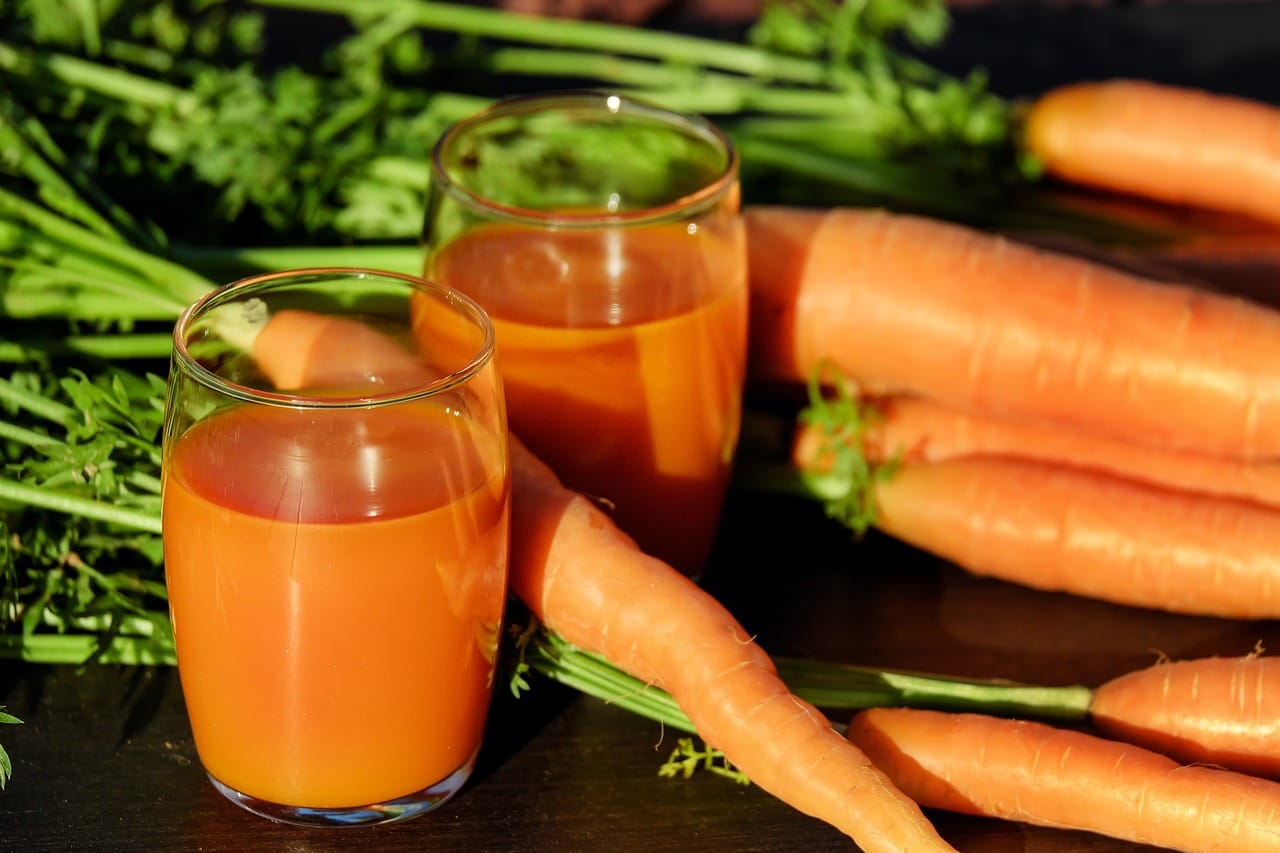It is believed that if you eat carrots or some other fruits and vegetables before sunbathing, your tan will turn out darker. We decided to check how justified such recommendations are.
Collections of foods that must be consumed to get a beautiful dark tan can be found in the media (“Komsomolskaya Pravda", "Sport Express", "Russian newspaper"") and glossy magazines (Marie Claire, The Voice, The Symbol). These tips are also shared portals, dedicated cooking And lifestyle, users blogging platforms And social networks.
Tanning is a protective reaction skin exposure to ultraviolet radiation types A and B, which can damage skin cells, contributing to skin aging, burns and the development of cancer. When the rays reach the lower layers of the epidermis (upper layer of skin), melanocyte cells begin to actively produce pigment melanin. It determines the color of a person’s skin, hair and eyes. Melanocytes in the epidermis are capable of producing two types melanin: eumelanin (the pigment responsible for brown and black shades) and pheomelanin (red and yellow). The “basic” shade of a person’s skin depends on their quantity and ratio. That is, normally melanin is always present in the body, but if you expose the skin to ultraviolet radiation, its production can be stimulated. One of the functions of this pigment is to absorb ultraviolet radiation, protecting the skin from damage. A side effect of this protective function is a change in skin tone. Accordingly, the more time a person spends in the sun, the more melanin is produced in his body. However, this is not an instantaneous process, and if melanocytes do not have time to produce the required amount of pigment in time, ultraviolet rays can harm the skin. In addition, only eumelanin provides some protection from the sun - if melanocytes produce it in small quantities, then you won’t be able to get a strong tan (but it’s quite possible to blush and get burns).

Contrary to popular belief opinion, tanning can hardly be called any good for health - provoking the body to produce melanin, in addition to a beautiful skin color can be obtained sunburn, premature wrinkles and cancer. In addition, with intense exposure to ultraviolet radiation, even eumelanin will not be able to protect the skin, so the use sunscreen It is also necessary for people who are naturally dark-skinned or already tanned.
The shade to which the skin can darken when tanning depends on the amount eumelanin, which the melanocytes of a particular person are capable of producing. If it is low, then even after prolonged exposure to the sun a person will not be able to get the same dark skin tone as someone whose melanocytes are more active. The ability of these cells to produce melanin determined primarily by genes, which cannot be changed by any food or nutritional supplement. The level of this pigment in the body can also be affected by some diseases. One of them is albinism, when melanin is not produced at all or is produced in very small quantities. If some foods could really enhance the production of pigment, this hereditary disease would be easily treated by switching to a certain diet, but today there are no methods of treating albinism. During hormonal changes (for example, during pregnancy) or with age, pigment spots may appear on the skin, but “Verified” was not able to find cases where, for these reasons, the entire skin evenly changed its color.
Authors of many articles about food that supposedly promotes tanning, advise eat more foods containing vitamins A, C, E and antioxidants. However, if you take a closer look at the content of such publications, it becomes clear that all these recommendations are not related to obtaining a darker skin tone, but to maintaining the natural production of melanin and reducing the damage that the skin receives from sunbathing. “Verified” was unable to find high-quality studies that would confirm that certain vitamins and other nutrients can in any way affect the production of melanin and, as a result, tanning. As for the “help” of some products in protecting the skin, this is a topic for a separate analysis. However, any tan will look better on healthy skin, and its condition depends from the health of the body as a whole, so eating foods rich in vitamins, as well as micro- and macroelements, is in any case a good idea.

The product that is most often recommended to be consumed to enhance a tan is carrots. However, Verified did not find any studies that confirm that the nutrients contained in this vegetable affect the level of melanin in the body. At the same time, carrots contain beta carotene - a substance that gives it (and also sweet potatoes, apricots, mangoes, oranges and some other fruits and vegetables) an orange color and promotes the production of vitamin A. It is very important for the health of vision, skin and hair, but its excess is also dangerous, as well as shortage. Fortunately, beta-carotene is converted into vitamin A only when the body needs it. Otherwise, it simply accumulates, which can lead to unexpected consequences: a person who abuses carrots and other carotene-containing products will develop carotenemia, and his skin will begin to acquire an orange or yellow tint (and this has nothing to do with exposure to ultraviolet rays). Fortunately, carotenemia is not dangerous and, if you adjust your diet, goes away on its own. And getting it is not so easy: for the skin to noticeably change its color, you need to consume 20–50 mg of beta-carotene daily for several weeks, that is, four to ten carrots medium size. IN mango And apricots There is noticeably less of this substance, so you need to eat even more of them to develop carotenemia. In some cases, an orange tint can indeed give the tan a color that a person likes more, but this is too individual to advise all sunbathing lovers to lean on carrots. In addition, you need to start overeating on carotene-containing foods in order to get at least some effect much in advance, and doing this just before going to the beach is pointless.
Also in some publications you can find a recommendation to consume more foods containing amino acid tyrosine, since she participates in the process production melanin. However, it is one of the so-called nonessential amino acids, meaning the human body is capable of producing it on its own. In addition, tyrosine is found in many foods, so it is unlikely that a person eating a balanced diet would be deficient. If there is not enough of this amino acid obtained from food, the body will begin to produce it more actively, but if there is an excess, on the contrary, it will destroy unnecessary molecules. In other words, there is no point in specifically relying on foods high in tyrosine or nutritional supplements with this substance; this will not affect the production of melanin and its amount in the body.

In some online stores You can find tanning tablets, which, judging by the promises of manufacturers, can enhance the production of melanin and help acquire a dark skin tone when sunbathing. However, at the time of writing this analysis, there is no drug approved by international medical organizations that stimulates the production of melanin in the body. The US Food and Drug Administration (FDA) directly warns from using such supplements, since they have no proven effectiveness and can lead to serious side effects.
Thus, the darkest shade of tan is determined by the amount of melanin that the human body is capable of producing, and it is mostly determined genetically. Pigment production is the skin's defense mechanism, so the only way to activate this process is to expose the skin to intense UV rays, which carries serious health risks. There are currently no scientific studies that support the effectiveness of any food or substance in it to stimulate melanin production or increase its natural levels in the body. Dietary supplements sold as tanning pills have not been approved by regulatory authorities and should be taken at your own risk. Eating carrots, other carotene-containing fruits, and foods rich in vitamins and antioxidants in reasonable quantities is a good idea because these substances support skin and overall health, but don't expect them to increase your tan.
Cover photo: pixabay.com
Read on the topic:
- WebMD. What to Know About Tanning
- Is it true that ultraviolet manicure lamps increase the risk of skin cancer?
- Is it true that blue light from electronic devices accelerates skin aging?
If you find a spelling or grammatical error, please let us know by highlighting the error text and clicking Ctrl+Enter.






